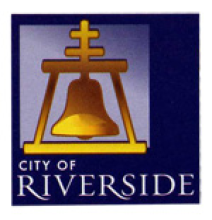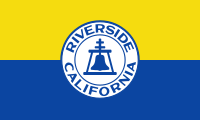
Fast, affordable Internet access for all.

Riverside, California was just named the Intelligent Community of the Year 2012 by the Intelligent Communities Forum. It is only the fourth U.S. city to win in the 14-year history of the award. Among its top qualifications are a publicly owned fiber optic network linking public buildings (eliminating the need for any leased lines) and a free Wi-Fi network that aids an impressive digital inclusion approach.
The path to the award began in 2005, when the City hired a full time CIO, Steve Reneker, and launched SmartRiverside as a way to attract technology companies. In addition to efforts to connect to California's reputation as a technology leader, the City invested in the basics. From a Government Technology article:
A year later, the City Council addressed physical infrastructure needs by approving Riverside Renaissance, a $2 billion effort to improve traffic flow; replace aging water, sewer and electric infrastructure; and expand and improve police, fire, parks, library and other community facilities.
“We’ve done a number of things that have changed Riverside to make us competitive,” said Mayor Ron Loveridge.
Part of being competitive was capitalizing on the City's existing fiber network ring, managed and maintained by the City Public Utility. The fiber network was originally focused on running the operational facilities for power and water but according to Reneker, via email:
...over the past 4 years, IT was able to work with our City Manager’s office and finance the construction of fiber to every City facility. So all telco lines have been eliminated and now all voice, data and video traverses the 1Gb network to City Hall. In addition, the City went live with City wide WiFi in May 2007, and the fiber was run to 6 tower locations to enable WiFi coverage city wide.
The fiber network provides the needed infrastucture to offer free Wifi all over the City. From the Intelligent Communities website:
A free WiFi network now offers up to 1 Mbps service through 1,600 access points, and exploding demand has led multiple commercial carriers to deploy high-speed broadband across the city. Riding the network is an array of award-winning e-government applications, from dynamic traffic management to graffiti tracking and removal.
The city recognized it also needed to invest in digital inclusion in addition to network infrastructure. Thirty percent of Riverside residents earn less than $45,000 a year and 70 percent of the student population qualifies for the free or reduced lunch program. The community network would only be as good as the number of residents using it, so bridging that divide was critical.

SmartRiverside procured a grant from Microsoft in 2006, which allowed the City to start the Digital Inclusion Program. The program provides free refurbished computers to household earning less than $45,000 and provides classes on computer skills. Signing up is easy - residents can call 311 and talk to a City representative who will complete the application for them over the phone. New clients are taken on a first come first served basis and taught by instructors from Riverside's school district. Upon completion of about eight hours of classroom instruction, the participant receives their free refurbished computer.
As of October 2011, the program had served 5,000 families and currently serves 100 - 150 families per month. With free Wifi over 78% of the City (equal to approximately 54 square miles), graduates have ample opportunities to use their computers. Reneker sees the free Wifi as a key to the success of the Digital Inclusion Program.
Naturally, the ability to provide computers to so many families requires a steady input of donated equipment and the staff to prepare and configure them. Computers are donated by the public, schools, and local businesses. Project BRIDGE (Building Resources for the Intervention and Deterrence of Gang Engagement), a City Park's program, places at-risk youth in positions throughout the City. Project BRIDGE members work at the Digital Inclusion e-waste facility cleaning hard drives, configuring donated computers, and installing software for Digital Inclusion families. Project BRIDGE members get the opportunity to start training for A+ certification, which can lead to advanced training and positions in the IT industry.
For more about the network and the program, check out the video below.
